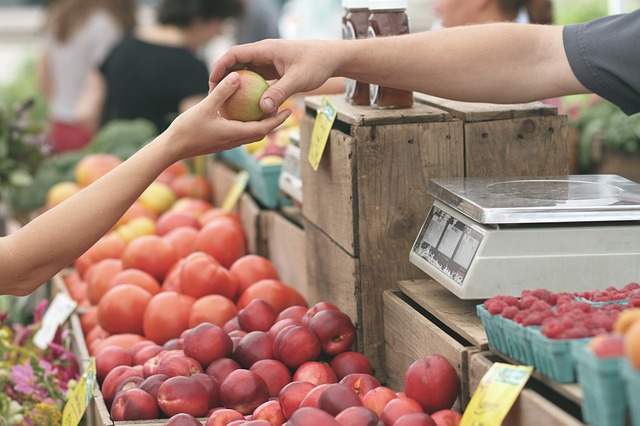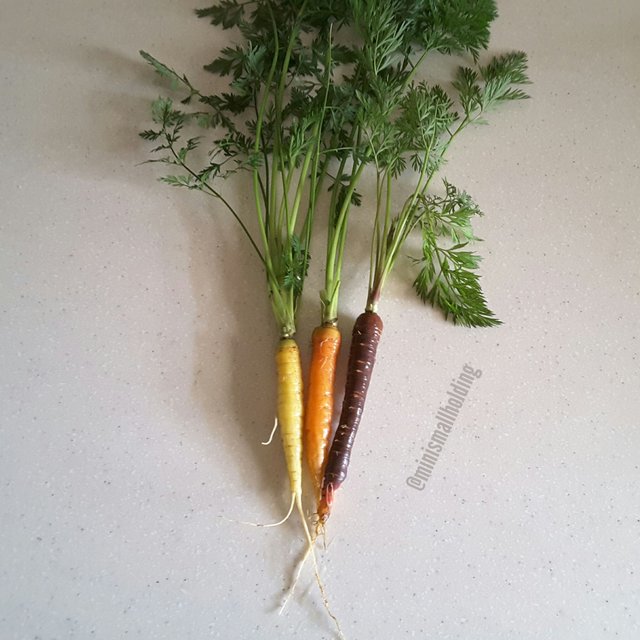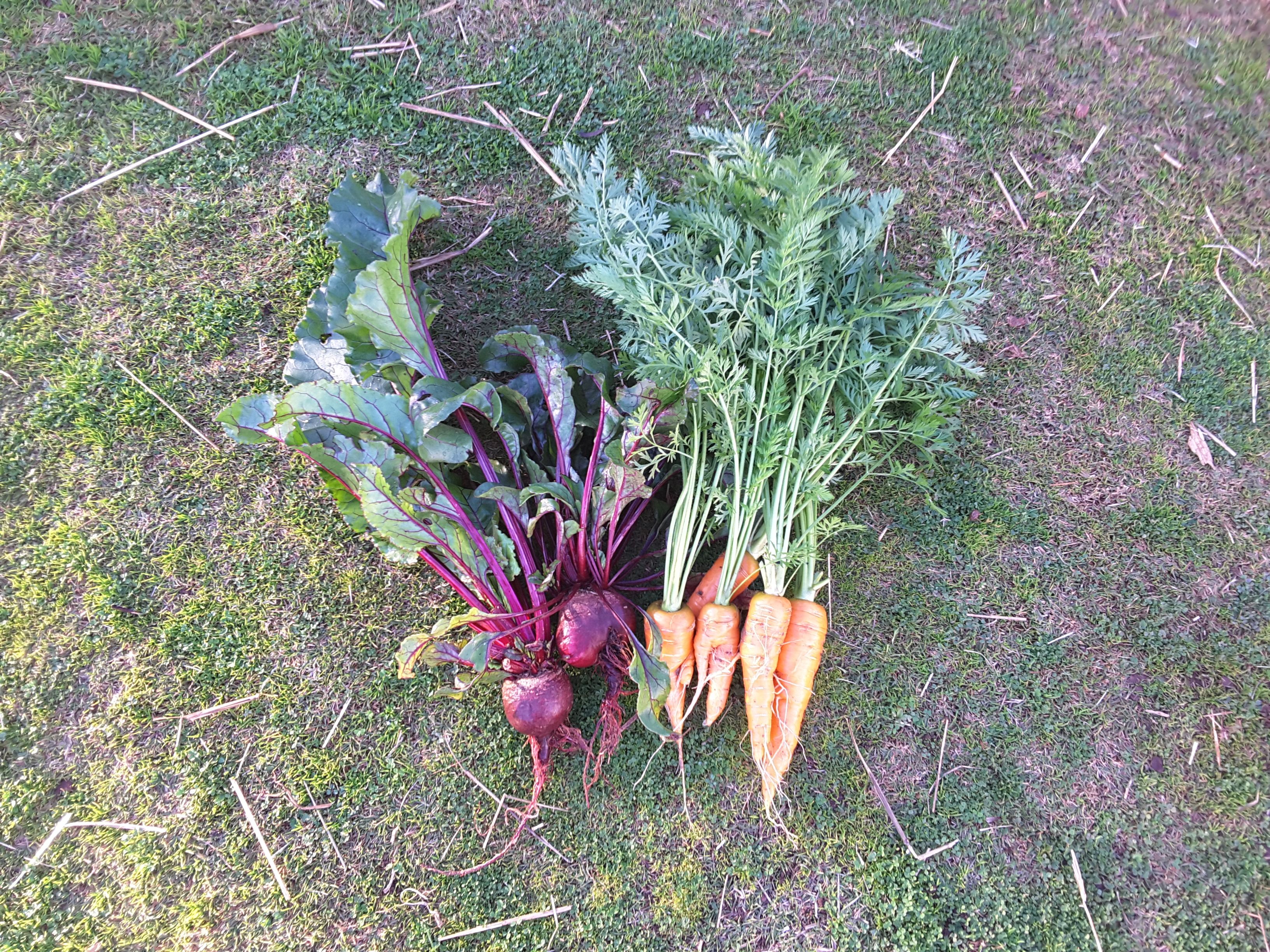Taking Back Control of Our Food Production: What's Already Being Done
In order to provide cheaper and cheaper food our farming industry has spiraled into animal abuse, land destruction, pollution and spraying foods with toxins. For me this is unacceptable and it's something I'd like to play a part in changing. More and more people are withdrawing their support for these farming methods yet they are still going strong. I don't believe any one method of withdrawing support for this industry is going to work short of enforced regulation which takes away more of our freedom of choice and this is just a slippery path to dictatorship.
So I want to go through some of the solutions that have been put into practise so far, look at the benefits and see what they don't address. Then maybe more ideas can be put forward to fill in the gaps and see if we can't put these destructive farming methods to bed once and for all.
Vote With Your Dollar:

source https://pixabay.com/en/apples-business-buy-deal-1841132/
This is one I'm hearing a lot lately as more producers turn to organic, ethical farming practices. For various reasons, the costs of raising food this way is higher, so the cost to the consumer is higher than from intensive farming.
So the idea behind voting with your dollar is that you withdraw your support for all farming methods that you don't approve of and give that support to humane, regenerative, sustainable and local practices. It's a great idea and is certainly expanding this market which is allowing more and more farms to make a living from organic and pasture raised foods.
However, the cost of these foods is beyond the reach of low income earners and people on the poverty line. Yes, some people can curb spending in other areas in order to redirect their income to better food, but many cannot as they are already struggling to afford food even with the best budgeting. Unfortunately, even in “wealthy” countries these people make up the largest portion of the population. So while this huge market is still there for cheap foods, intensive farming will continue to exist.
Go Vegan:

Eating a vegan diet withdraws support from all the intensive and abusive animal farming methods. It also creates less demand for the breeding and production of huge amounts of animals which cause air pollution via their digestive systems and ground pollution if their waste isn't managed correctly. In recent years there has been a huge shift towards vegan and vegetarian diets and in the western world pretty much every restaurant will have several vegetarian options on their menu and probably even a vegan one. That's an amazing change in just one generation.
Yet this still won't stop animal farming because you can't make everyone stop eating meat. As hard as it is for some vegans to hear there are even some people who cannot thrive without some meat in their diet. Not everyone's body can digest a plant only based diet well enough. Then there's also the fact that people just crave meat, eggs and dairy whether they need it or not, just like they crave sugar. Say what you want, you're not going to be able to stop everybody from choosing to eat it.
This also still doesn't address the problem of the people who live on the poverty line. While meat is expensive and going vegetarian or vegan will help in that regard, people choosing this lifestyle still come from all walks of life and they still may not be able to afford good organic food.
Grow Your Own:

With companies trying to cash in on the “organic” and “free range” market and using loopholes to describe products this way that aren't farmed how you'd expect, raising or growing your own food is starting to feel like one of the few ways you truly know how your food was grown. Growing your own veggies is also cheap, especially when grown from seed. If you can seed save as well then it becomes a money free venture! No matter how much room you have you can always grow something even if it's herbs in pots on your window sill. Every little bit grown reduces support for intensive farming methods or just means you might be able to enjoy something you couldn't normally afford. Of course the more land you have to grow in the more food you can provide from that land.
Food should be available for all and there are so many initiatives that are expanding from people growing their own food that could potentially make a huge impact on how we farm. I plan to go into more detail on them in another article.
So the limitations with growing your own food are obviously based on the amount of land you have. If you're a meat eater you're unlikely to be able to provide your own meat from the average suburban garden. You may not even be allowed to keep a few chickens for eggs and if you are, what do you do when they're no longer laying?
Brainstorming Time!
So now I'm just going to add some other thoughts and ideas on what else people could potentially do to feed themselves without supporting destructive farming methods. Please feel free to add your own suggestions in the comments. I'd love to hear them.
Foraging and hunting invasive species:
Some other options to get food that doesn't support destructive farming methods could be foraging and hunting introduced animals that are destructive to the native environment. Many countries spend a lot of time and money poisoning invasive species which can often cause just as much harm to the native species. Many of these plants and animals are edible though, so why not encourage people to eat them and they can try and pull the plants out while they're at it! Of course I'm under no illusions that many people would want to do this or have the time to do this. It's so much easier to go to the shops or get fast food! You'd also need to know what is edible and what is really NOT.
Foraging for native plants is also an option, but it's not something that should be done intensively as you don't want to risk stripping the natural environment. It might not hurt to spit those fruit seeds back out though and hopefully help the native plants to spread!
Of course these are all just ideas on how we can help ourselves to not support intensive farming. Individually they won't make much impact, but as we combine them they start to make more impact. However, if this way of farming is to stop, still more needs to be done to address the gaps. So next I'd like to explore ways we can reach out to provide others with ethically produced food.
You can also find us on:
Instagram: https://www.instagram.com/minismallholding/
Facebook: https://m.facebook.com/minismallholding/
YouTube: https://m.youtube.com/channel/UCBwcsmyIkW_hIEJdLUSd44g
I have been an environmental campaigner all my adult life.
Over the past decade or so I have increasingly realised what an important campaigning tool food is.
Everyone consumes food every day. How that food is produced and distributed has such a major impact on the wellbeing both of us and of the planet.
So food choice is so very very important.
What you eat and where it comes from. Every food decision is a plus or a minus for the planet.
I started down the road of buying local and buying organic. I still do that as far as I can - but it is expensive - often almost doubling your food bill.
So for the past couple of years I have really upped my emphasis on growing my own food. I am striving for 'food independence' in different products one by one.
I have already achieved 'egg independence', 'salad greens independence', 'onion independence'... and am close to achieving it in a range of other vegetables.
I am lucky to have land to do this, but everyone can grow something if only microgreens on a windowsill.
As we reach the point of surplus on eggs and some veg we have been following the lead of @lyndsaybowes with her 'Food is Free' project and giving away what we don't need to friends and neighbours. Hopefully that helps just a little big more in getting better food to better people.
I like how you are doing the independence one step at a time. Sometimes you can take on too much at once and then end up giving up. I'd love to hear how you go with this, what level of independence you ultimately reach and how this compares with the amount of land you have. Also do you use greenhouses or poly tunnels to grow through winter? The benefit of our climate is being able to grow year round, but of course that's not available to everyone.
I'm currently working on a post on the " food is free" project and other things similar. I only came across that about a year ago I think. Thank you for mentioning it specifically, you've just reminded me of a laneway in Ballarat, Victoria that I should include.
All so true...sad but you have to be vigilant in the store with every single purchase. Best not to go at all....That is why I drive 2 hours each way for raw milk and grow our own (grass fed only)ducks and beef. Not to mention my own fruit and vegetable co-op. So many people have no idea how poison their food is.
Great Article!
Melissa
"Eating a vegan diet withdraws support from all the intensive and abusive animal farming methods. It also creates less demand for the breeding and production of huge amounts of animals which cause air pollution via their digestive systems and ground pollution if their waste isn't managed correctly." Grass fed cows improve the land at our ranch you can see the difference in the lands that are eaten and left to be overtaken by invasive grasses that are not edible....i have a difference of opinion here but i do agree ...you are correct regarding feed lots and grain fed rumen destroying, factory milk and meat farms.
I believe the US is probably the worst country for poisoning its food and the leader in the war on it. How America deals with it could have a big affect on whether we can manage to fight it in countries like Australia as GMO stats to encroach more here.
Sounds like you're managing your animals' waste the right way, the way nature intended! This is why we need to go back to this sort of farming method which encourages the natural cycle between plants and animals. I would also like to find out if cattle feeding how they are supposed to feed produce much less greenhouse gases. There seems to be some indication they do. However, sadly, most of our meat and dairy is still produced the monoculture way at the moment.
Interestingly, I looked into how many buffalo used to populate America. They think about 60 million. So that's a lot of cattle supported on the land in natural balance with nature. The current level of domestic cattle is 90 million though. So cutting back on meat consumption is still not a bad idea. It does make you think on these arguments that we can't produce enough without intensive farming.
Thank you four your feedback Melissa. I really appreciate it.
i agree that people do eat far too much protein from animals...it is not necessary at all. I have a 12 year old who is right at 6 feet. He has it available everyday but does not always opt for me to make meat for him. He likes it but does naturally choose other items. We are blessed to have many other choices. :)
Happy Day!
@mrainp420 has voted on behalf of @minnowpond. If you would like to recieve upvotes from minnowpond on all your posts, simply FOLLOW @minnowpond. To be Resteemed to 4k+ followers and upvoted heavier send 0.25SBD to @minnowpond with your posts url as the memo
This post received a 20% vote by @mrsquiggle courtesy of @choogirl from the Minnow Support Project ( @minnowsupport ). Join us in Discord.
Upvoting this comment will help support @minnowsupport.
Nice one. As a vegan, I obviously support your message. 😁
Once such a rare creature! 😁 There are so many more reasons why people are choosing to be vegan now and health is a big one as so many are getting sick with our modern life. It used to mainly be for the animals.
How common is it in Panama? Are you a rarity there, or is it getting more common?
It's not that common. I know of two others. Eating out is a pain in the arse, but you can get a good selection of vegan products in supermarkets etc. cos most of our food comes from the US.
As someone who grows most of my own food, I do not believe veganism can feed hungry masses. That is why I promote aquaponics, was just blogging about it this morning if you are interested. https://steemit.com/homestead/@fishyculture/how-i-became-fishy
Aquaponics is something I'd love to include in producing my own food. Unfortunately time restricts me at the moment as does space.
I saw this at Home Depot last week, just add a goldfish and some herb starts! Lol!

😂
Broken YouTube link
Hi @minismallholding, I've just spotted the YouTube link at the bottom of your post is broken - it is missing a 'g' at the end.
It should be :
Thank you. 😊
Great article with some real ways to change what is being forced on us as consumers. I like your ideas. 🐓🐓
Thank you.
Congratulations @minismallholding! You have completed some achievement on Steemit and have been rewarded with new badge(s) :
Click on any badge to view your own Board of Honor on SteemitBoard.
For more information about SteemitBoard, click here
If you no longer want to receive notifications, reply to this comment with the word
STOPWe grow a lot of our own food but not the major portion. I’m trying to be much more conscious of voting with my dollars. Thankfully there are a lot of local small farms that are providing amazing variety here where I live. Thanks for the thoughtful post! Upvoting and following
Thank you and thank you for the feedback. Sounds wonderful to have such a good variety of local food being produced.